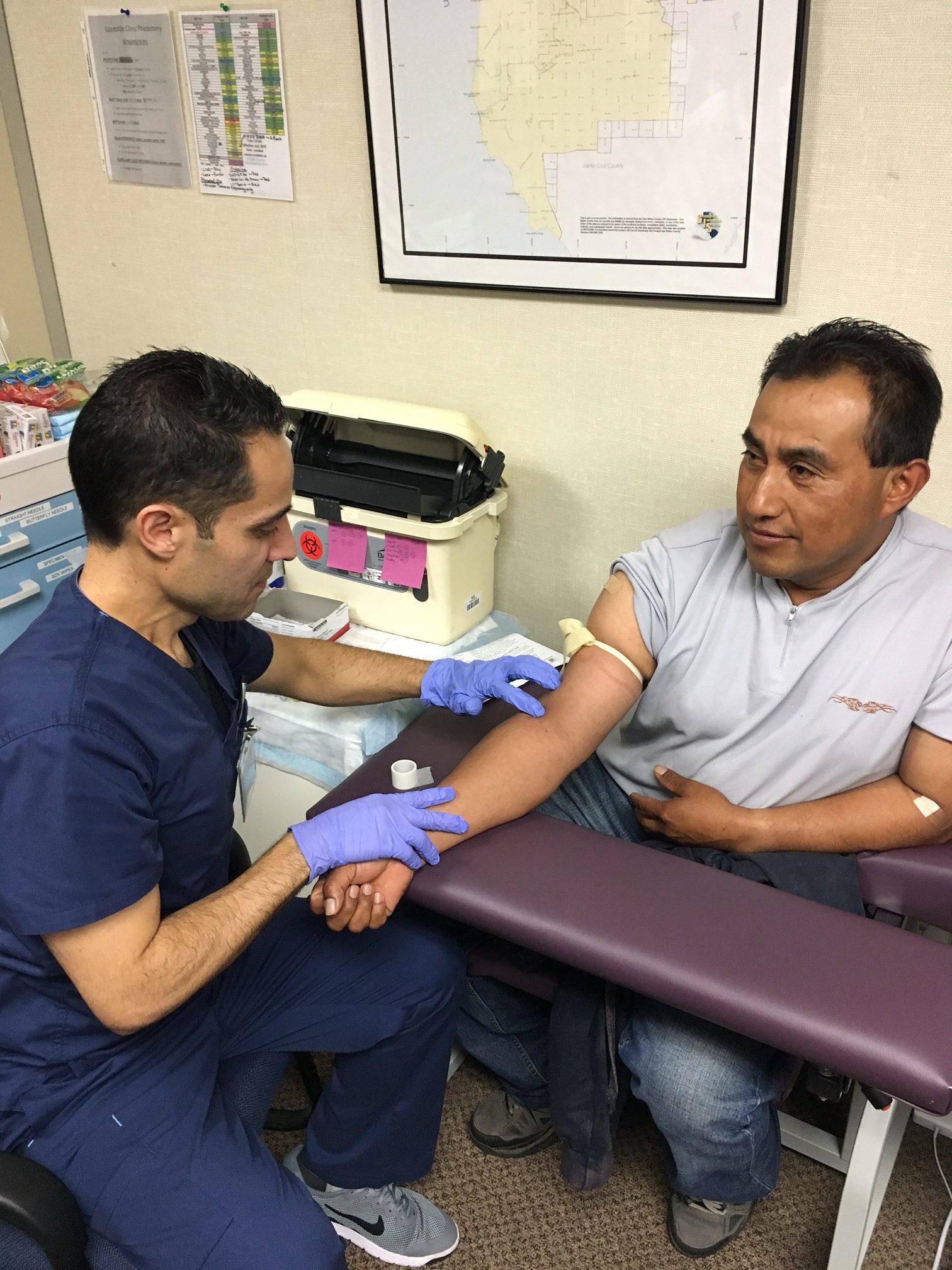Rita Mancera, Executive Director, Puente
By the time the sun goes up in the morning, a farmworker in Pescadero has already been up for a couple hours getting ready for his daily shift. He came to the United States because the living conditions in his hometown in the state of Oaxaca were tough. He comes from a small town where he used to work the same number of hours for $4.55 dollars a day! Crossing the border with his family and finding any job on this side of the border seemed to be their only chance for a better future.
His wife is up too. Together they prepare their lunch for the day and wake up their children so they can drop them off with a baby sitter who will get them to the school bus later that morning.
Teresa and Alejandro, like many of the farmworkers on the South Coast and the rest of California and other agricultural towns in the United States, work very hard under all kinds of conditions – heat and cold the same. They are people of good character who take care of themselves and take care of their parents who still live in Mexico, whom they have not seen in the past 16 years.
I have talked to Teresa many times about her crossing, about her fears and, I always add, about her bravery. She is a very caring mother with a daughter graduating this year from high school and a son in elementary school. She works in a nursery during the day and comes to English classes in the evening. She attends parenting classes and other workshops and stays involved in school and the community at large, volunteering for community events occasionally.
Teresa and Alejandro’s future is the most uncertain time they have faced. They fear being separated from their children suddenly without warning. The first time we talked about this after the results of the recent election they wanted to know whether they should leave or stay. They have decided to stay and see if the new administration will indeed send them back to Mexico or if they can continue their life here.
This farmworking family has decided to stay partially because they have caring friends, neighbors, and employers. They have Puente who will always fight to keep them safe, strong, healthy and united. They have you, who understand them, values their work and their contributions to the local and national economies of two countries. Today Teresa, Alejandro and many other farmworkers could use your support. Today is a time when your GIVING can help others with winter items most of us take for granted – sleeping bags, hoodies, winter jackets, bike lights and water bottles for long days in the field.
Give because you can. Give because you want. Give because it makes a difference.
Hoy es un buen día para dar – Hoy alguien necesita tu ayuda
Para cuando el sol se asoma en la mañana, un trabajador del campo en Pescadero lleva un par de horas levantado preparándose para la jornada del día. El vino a los Estados Unidos porque las condiciones en su pueblo en Oaxaca eran duras. ¡En el pequeño pueblo de donde viene el trabajaba el mismo número de horas por $4.55 dólares al día! Cruzar la frontera con su familia y encontrar un trabajo de este lado parecía la única opción para tener un futuro mejor.
Su esposa también está levantada. Juntos preparan su comida para el día y despiertan a sus niños para llevarlos con una cuidadora que los llevará al camión escolar más tarde.
Teresa y Alejandro, como muchos otros trabajadores en la Costa Sur y en el resto de California y otros pueblos agrícolas en los Estados Unidos, trabajan muy duro y bajo todas las condiciones – calor y frío por igual. Ellos son gente de buen carácter quienes proveen lo que necesitan para su familia aquí y sus padres que viven en México a quienes no han visto en 16 años.
He platicado en muchas ocasiones con Teresa acerca de su venida a los Estados Unidos, de sus miedos y, siempre le hago ver, de su valentía. Ella es una madre que se preocupa por sus hija que se va a graduar de la preparatoria este año y de su hijo en la primaria. Ella trabaja en un vivero durante el día, toma clases de inglés en la noche y viene a clases de padres y otros talleres cuando puede. Ella está involucrada en la escuela y en la comunidad y es voluntaria de eventos comunitarios ocasionalmente.
El futuro de Teresa y Alejando está en el punto más incierto que han estado en mucho tiempo. Ellos tiene miedo de ser separados de sus hijos sin aviso. La primera vez que hablamos de este tema, luego de los resultados de las elecciones, ellos querían saber si era mejor irse o quedarse. Ellos decidieron quedarse y ver si la nueva administración realmente los manda a México o si pueden continuar su vida aquí.
Esta familia decidió quedarse en parte porque tienen amigos, vecinos y empleadores que se preocupan por ellos. Ellos tienen a puente que siempre va a luchar para que estén juntos, fuertes y unidos. Ellos lo tienen a usted, que los entiende y valora su trabajo y sus contribuciones a la economía local y nacional de los países. Hoy, Teresa, Alejandro y muchos otros trabajadores del campo necesitan su apoyo. Hoy es un día en el que DAR puede ayudar a muchos con ropa y artículos de invierno que muchos de nosotros damos por sentado – cobijas, suéteres, luces para bicicletas.
Dé porque puede. Dé porque quiere. Dé porque su ayuda hace una diferencia.





